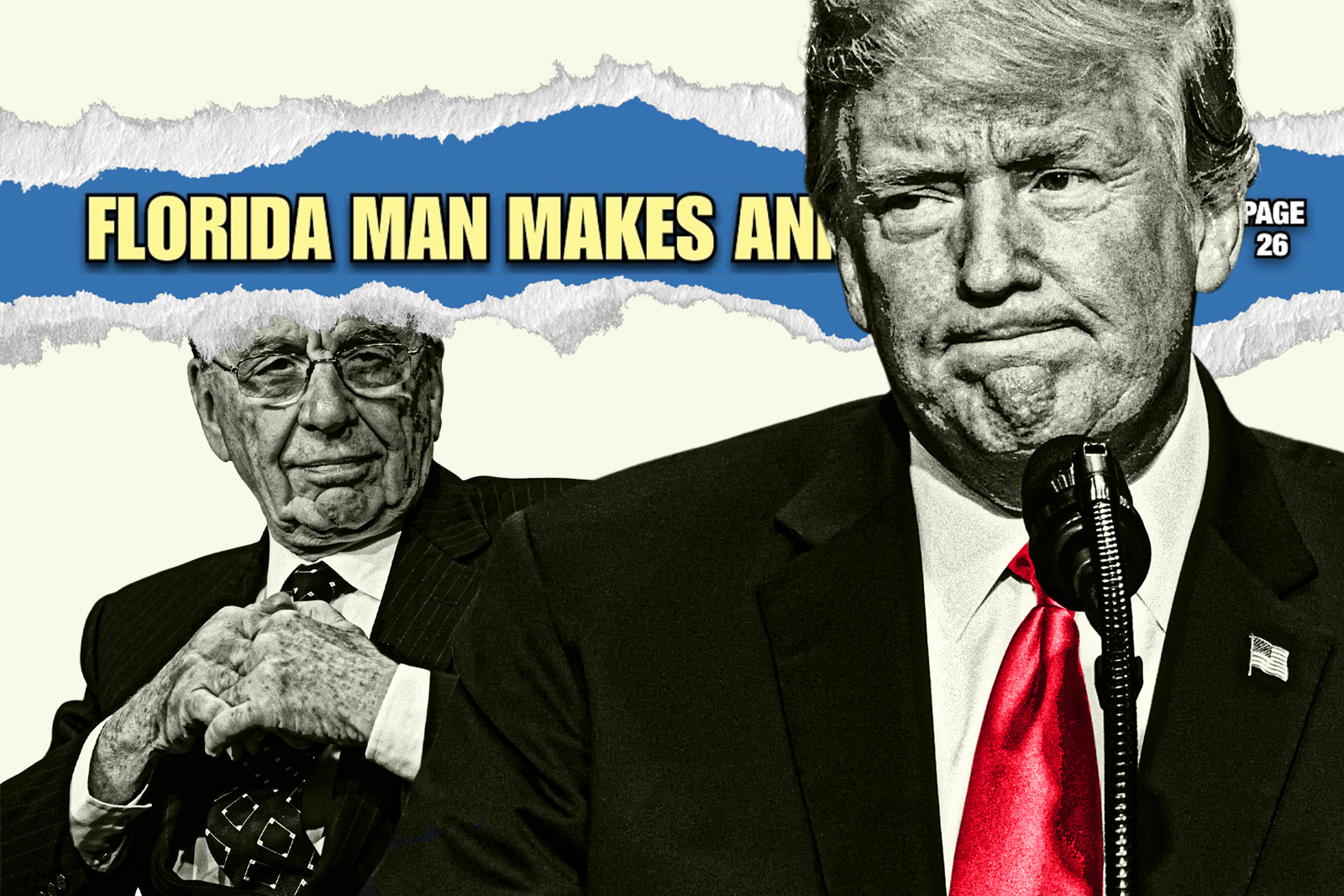
Politics
Can Donald Trump Win Without Murdoch?
No politician, journalist, or media critic has ever been heard to utter the phrase “as subtle as a Murdoch tabloid.”
So, when Murdoch’s New York Post responded to the Republicans’ unexpectedly meagre gains in the U.S. mid-term elections, you did not need to read between the lines to see whom they blamed.
The headline was “Trumpty Dumpty” with a picture of an egg-shaped Trump sitting on a wall and the sub-head “Don (who couldn’t build a wall) had a great fall – can all the GOP’s men put the party together again?” This is a reference to the great wall that Trump promised in 2016 to build along the Mexican border to keep illegal immigrants out.
The Rupert Murdoch-owned New York Post has turned on “Trumpty Dumpty.” This could get interesting, folks!! 🍿 pic.twitter.com/7RAIxu2SVM
— Jon Cooper (@joncoopertweets) November 10, 2022
More soberly, Murdoch’s Wall Street Journal editorialised that Trump is the Republican Party’s “biggest loser,” whose campaigning had failed in 2018, 2020, and now 2022.
Trump has now announced he will be a candidate for the presidency in 2024. This suggests the Murdoch-Trump divorce is going to be long and messy, and may be politically expensive for them both.
The Murdoch media relish their reputation as king-makers. In Britain in 1992, after the Conservatives unexpectedly were re-elected, the front page of Murdoch’s Sun proclaimed “It was the Sun wot won it”.
Indeed, Murdoch has been on the winning side of every British election since 1979.
interesting — Harris Faulker on her Fox News show showed a graphic of 13 potential Republican presidential candidates and Trump wasn’t among them pic.twitter.com/wdhF4OSSZY
— Aaron Rupar (@atrupar) November 15, 2022
This perfect record is not paralleled in the U.S. or Australia. Murdoch’s support was not sufficient to give Trump victory in the 2020 presidential election or the Morrison government success in 2022, let alone various state elections around Australia.
In Australia, the Murdoch press has been on a downward spiral in its capacity to directly influence election results. There seem to be three main reasons for this.
The first is their declining circulation, which not only has reduced their outreach, but increasingly means their readership comprises disproportionately an elderly constituency already set in their attitudes.
The second is that once Murdoch had a keen populist touch, able to sense coming currents in the public, side with them and make them stronger. But in more recent years his own strong right-wing views have made his media more rigid and less in tune with shifts in public opinion.
The third is that his media have become more crudely propagandistic over the decades. When Murdoch switched sides to Tony Blair’s Labour in the 1997 election, according to the acting editor of the Sun, Neil Wallis, Murdoch told him they were to be 200% behind Blair and everything he did. When he swung back to the Conservatives under David Cameron the news coverage swung at least as strongly in that direction.
In 2013, the Daily Telegraph kicked off its Australian campaign coverage with the injunction to “Kick this mob out”. It was a psychologically ripe moment after the Rudd-Gillard struggles. It is less clear that the anti-Labor campaigns since have been as in touch with the public mood.
Extreme coverage probably energises the base, but may not be terribly effective in swaying swinging voters.
In many ways, it would make commercial and professional sense for the Murdoch media to distance themselves from Trump. The next couple of years are likely to bring a series of controversies focused on Trump and his close allies such as Steve Bannon and Rudy Giuliani.
His business affairs may lead to prosecutions; the fall-out from the January 6 riots will continue in various ways, while there may be other specific charges relating to attempts at vote-tampering.
Moreover, all current support for Trump begins with the palpable lie that he really won the 2020 election. At the very least, support for Trump now is focused more on reclaiming the past than on the present or future.
It is easy to see that the culture war rhetoric of Florida Governor Ron DeSantis may overlap somewhat with Trump’s appeals, but without all of Trump’s baggage, and that this would be a tempting route for Murdoch. Indeed some reports have claimed Lachlan Murdoch has already offered to throw support behind DeSantis.
Rupert Murdoch urges Donald Trump not to run in 2024, threatening to back a Democrat if he does https://t.co/GAGT8ZTf9O
— Patricia Karvelas (@PatsKarvelas) November 14, 2022
While such a shift would probably work well with the Wall Street Journal, and the New York Post would still have its range of tabloid appeals, it would be trickier to execute it successfully on Murdoch’s Fox News.
Over the past six years, Fox News and Trump have had one of the closest-ever relationships between a political leader and a media organisation in any English-speaking democracy. Many of Fox’s most prominent stars have actively campaigned for Trump and advertised their closeness to him.
Moreover, the Fox audience would be one of the strongest Trump constituencies in the country. It would be very easy to alienate some of them, who may then turn to other right-wing media for more comforting views.
This article was originally published on The Conversation. Read the original article.

